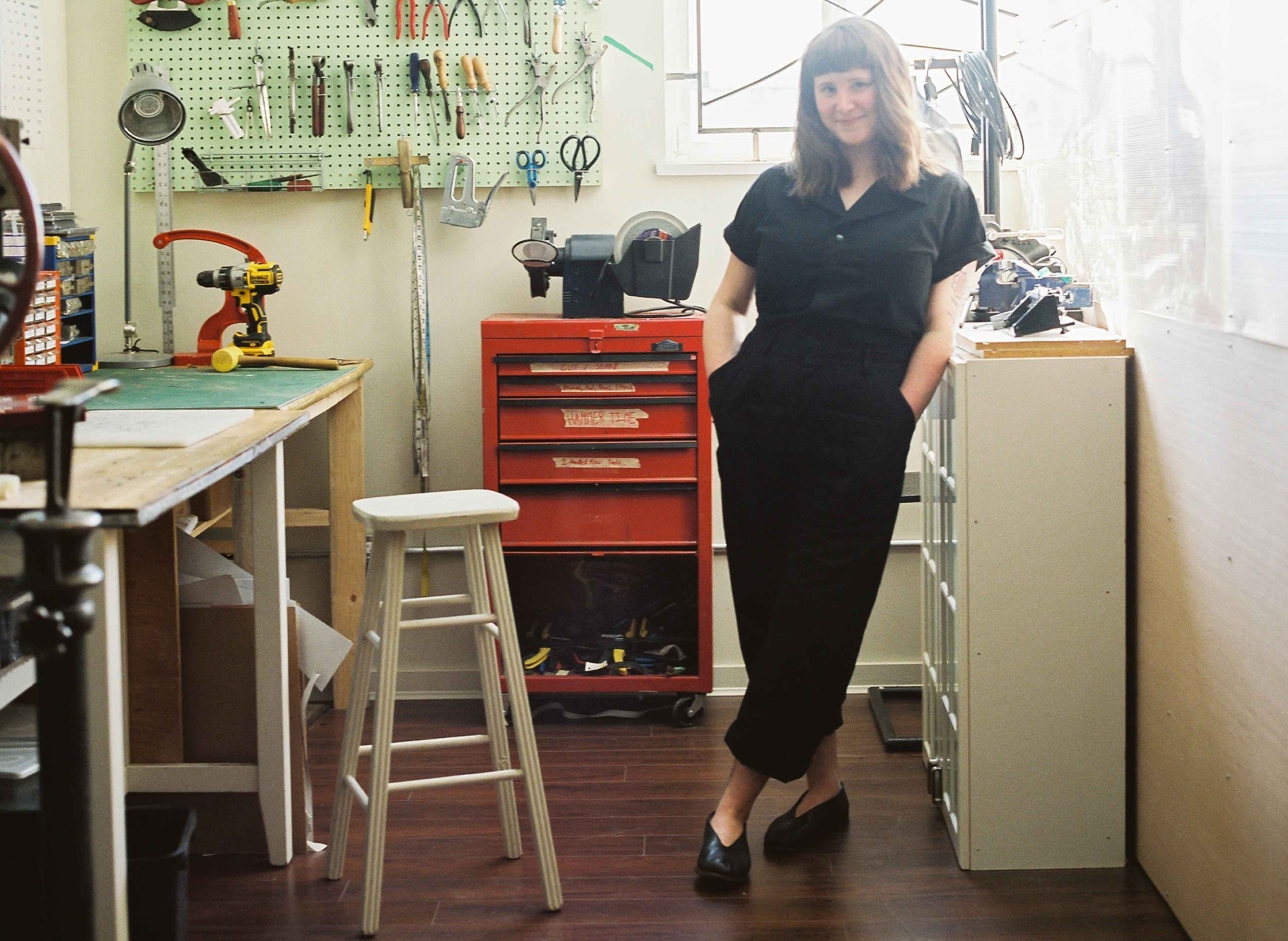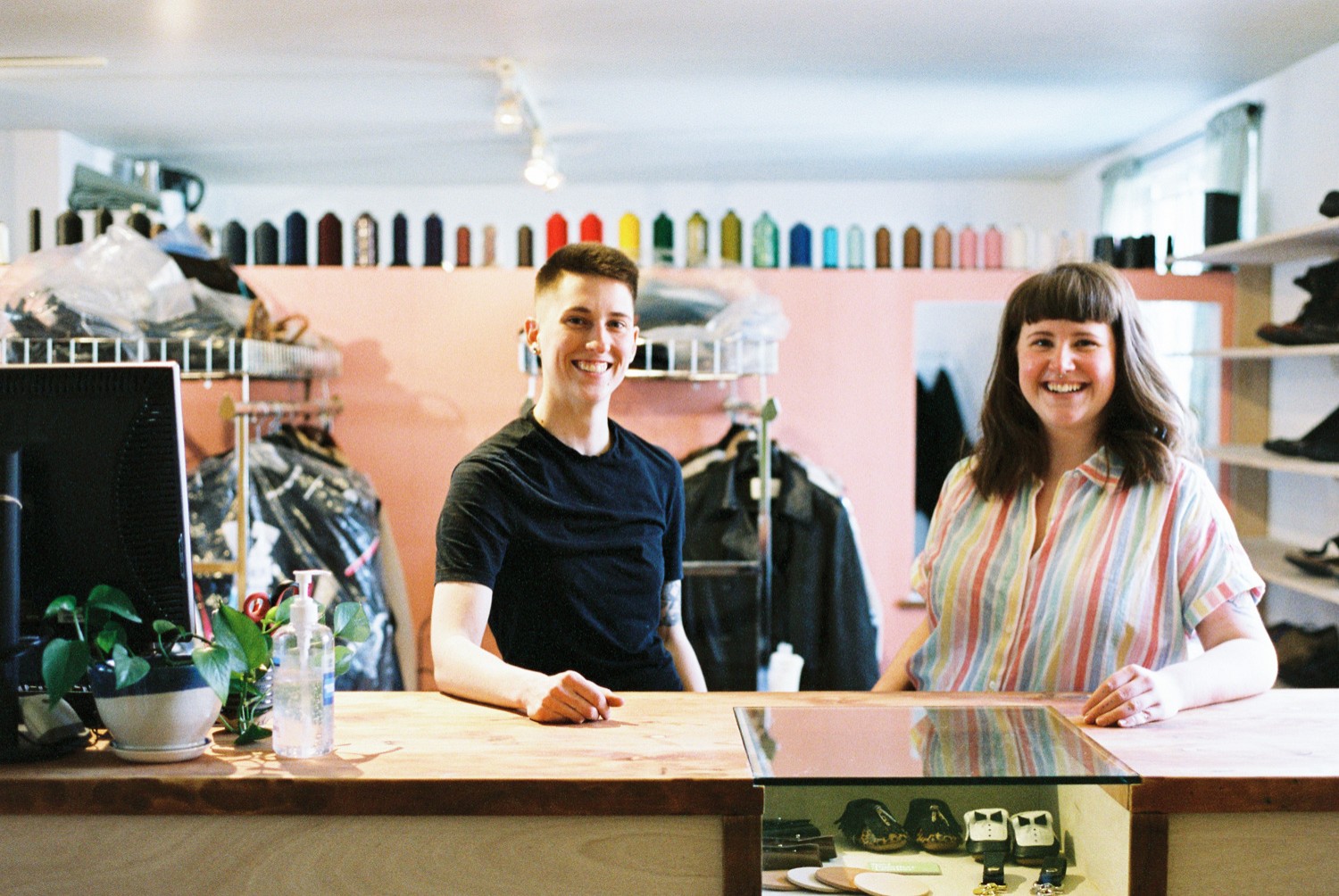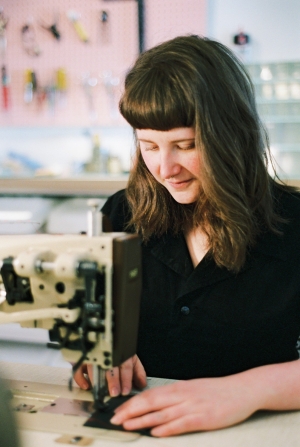Once graduated from Concordia’s Department of Studio Arts, Gobeil spent some time working at Saint-Armand, a Montreal-based paper mill and producer of handmade papers.
“I realized that as much as I love making paper, I didn't love being wet all day. You are working with big tubs of water and even when you're wearing a full apron and gumboots every day, your pants are still somehow wet all the time,” Gobeil remembers.
Knowing she wanted to be an artist, Gobeil took some time to make a list of everything she was looking for in a career.
“I knew I wanted to work with my hands, and that I wanted to do something relevant to my degree,” Gobeil says.
With a little bit of serendipity, she called a Vancouver-based cobbler at the right moment when he was hiring and Gobeil had a planned trip home.
After spending three and a half years learning the ins-and-outs of shoe repair and running a business, Gobeil also learned the art of shoemaking at a separate factory. She was finally ready to open her own custom leatherwork and shoe-repair shop.
From papermaking to book binding, printmaking and now shoe repair and shoemaking, Gobeil attributes her adaptability to her time at Concordia.
“I've always been someone who has dabbled in many skills. I was never really great about picking one,” she says. “The fact that Concordia offered a program that enabled me to do exactly that was fantastic.”
 “Concordia gave me the confidence to want to be a part of the art community,” says Tess Gobeil, who started Awl Together Leather in hopes of reinvigorating the cobbler industry. | Photo: Erin Flegg
“Concordia gave me the confidence to want to be a part of the art community,” says Tess Gobeil, who started Awl Together Leather in hopes of reinvigorating the cobbler industry. | Photo: Erin Flegg
 With sky-high Vancouver rents and the precariousness of the pandemic, the Awl Together Leather founding team of Tess Gobeil, BFA 15, (right) and her business partner Ariss Grutter launched a Kickstarter fundraising campaign to help get their business off the ground. In 36 hours, they raised $10,000. | Photo: Erin Flegg
With sky-high Vancouver rents and the precariousness of the pandemic, the Awl Together Leather founding team of Tess Gobeil, BFA 15, (right) and her business partner Ariss Grutter launched a Kickstarter fundraising campaign to help get their business off the ground. In 36 hours, they raised $10,000. | Photo: Erin Flegg
 From papermaking to book binding, printmaking and now shoe repair and shoemaking, Gobeil attributes her adaptability to her time at Concordia.
From papermaking to book binding, printmaking and now shoe repair and shoemaking, Gobeil attributes her adaptability to her time at Concordia.


